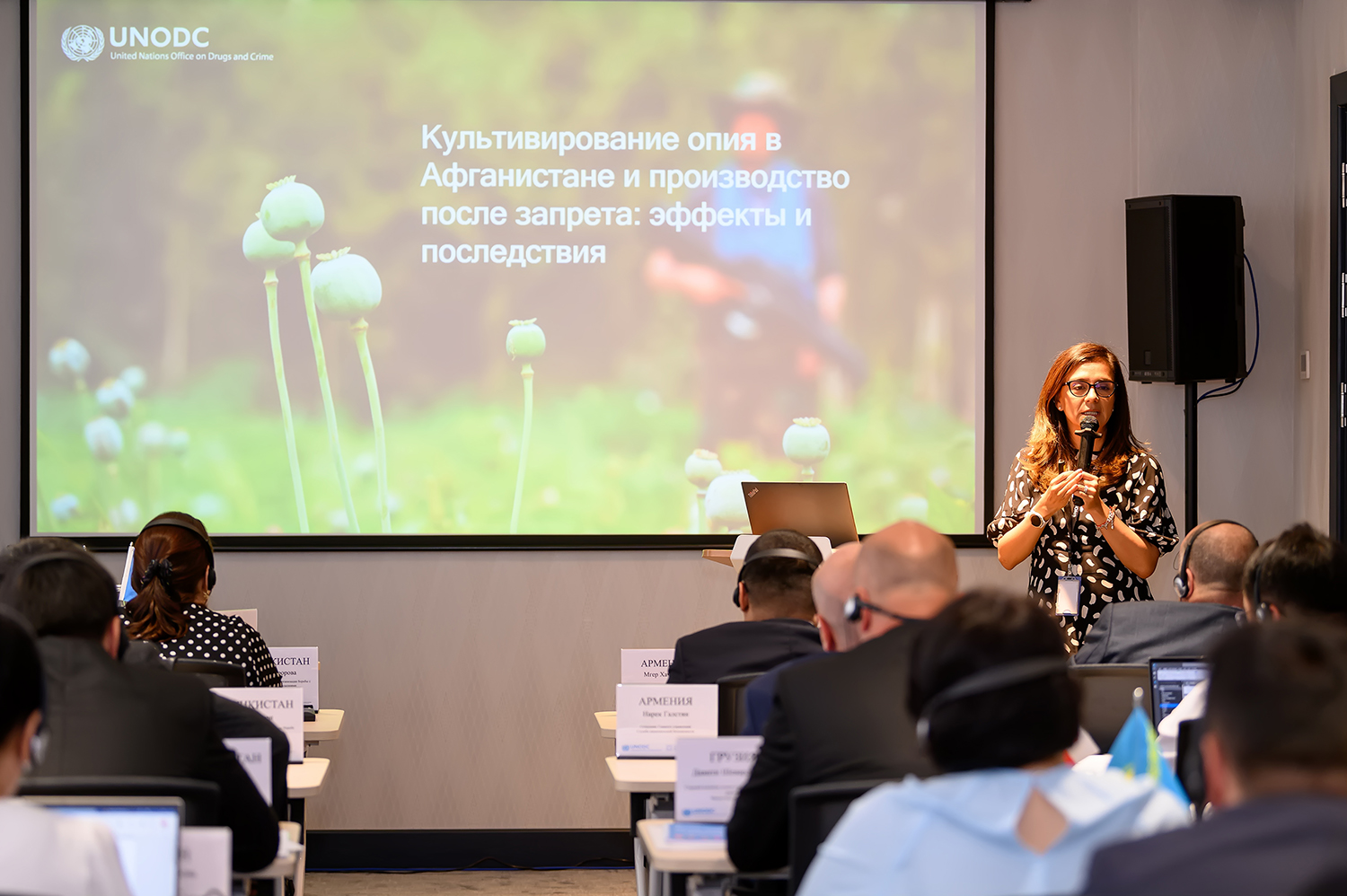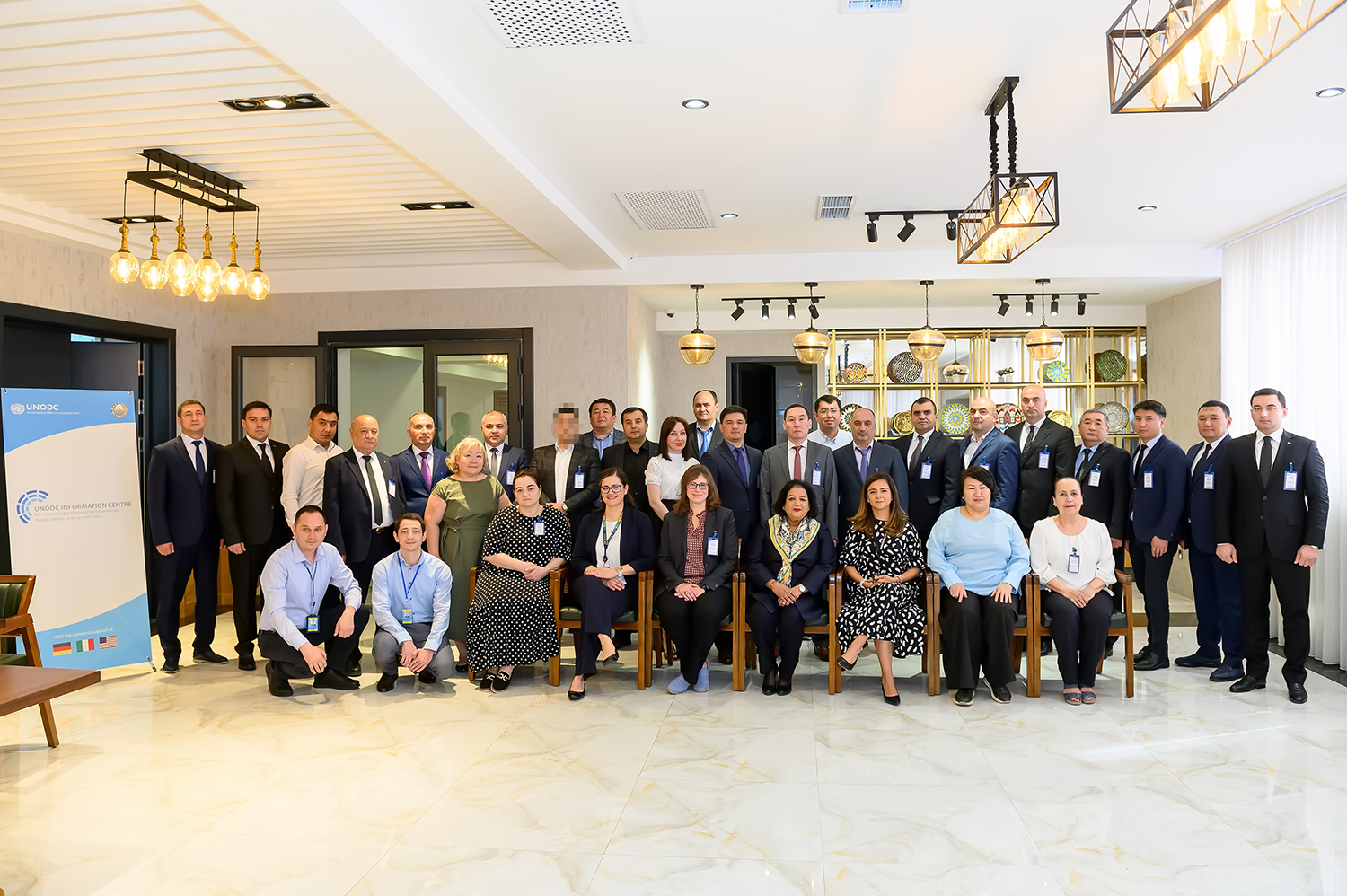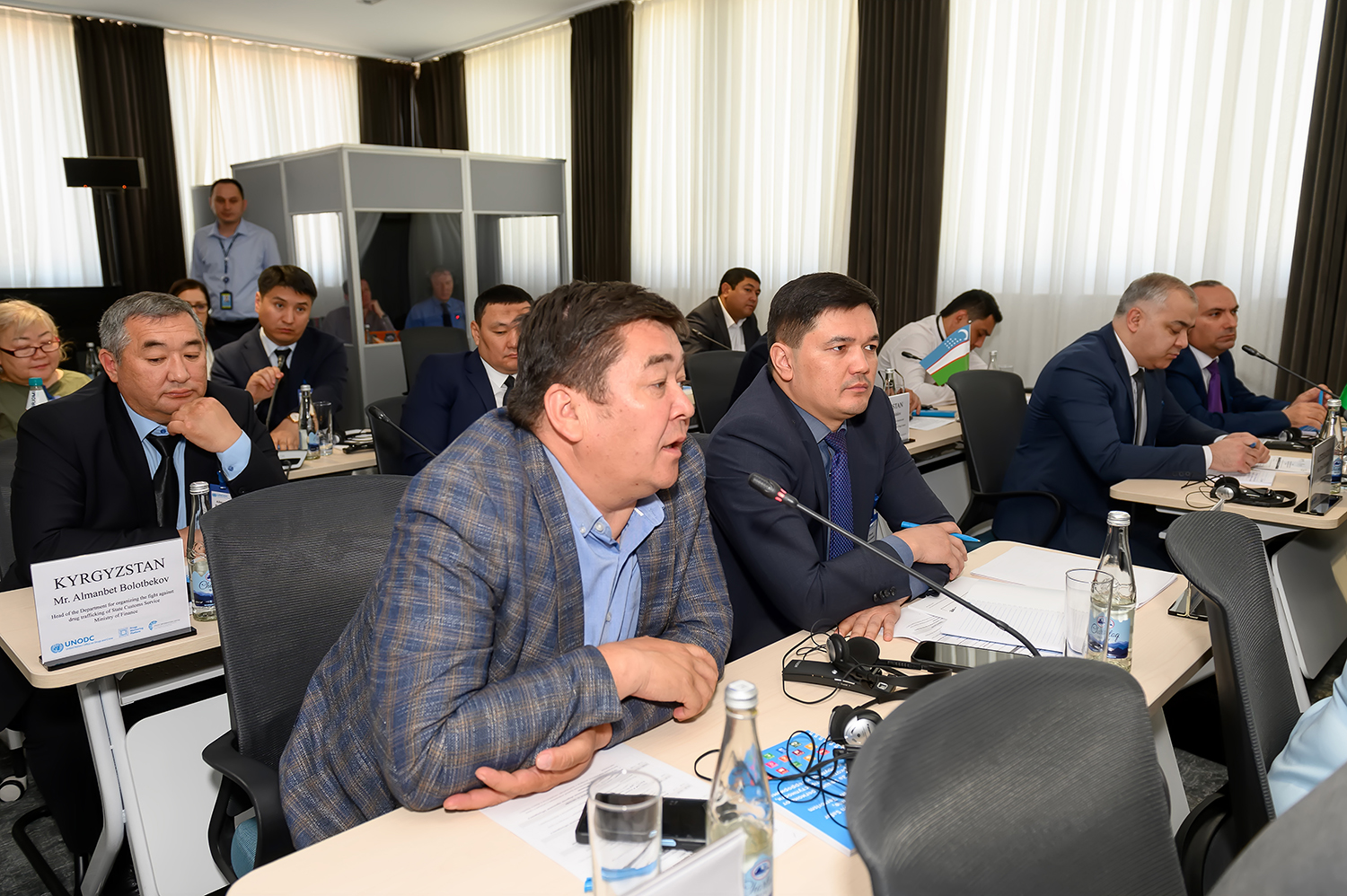
On 14-16th May, UNODC hosted the first meeting to establish a regional network around the Drug Monitoring Platform, the DMP. This Platform is a multi-source system for collecting, visualizing, and sharing drug data aimed at providing access to near real-time data on drug trafficking trends, delivering data using interactive visualizations adapted to user-specific needs, and improving early warning drug threat identification for law enforcement institutions.
During the meeting, UNODC presented the Drug Monitoring Platform and explained how this tool provides relevant information to support monitoring and decision-making in the fight against drug trafficking. The meeting also provided an opportunity to hear from participants what data is more relevant, what kind of visualizations are more interesting, and how this tool can be improved to best meet users' data needs on illicit drug trafficking.
During the sessions, participants shared recent trends in drug trafficking in their countries and exchanged useful information on emerging trends, including the seizure incidents over 2023 and 2024, the rapid evolution of existing controlled substances, the use of social networks to distribute various substances, and the use of cryptocurrencies in drug-related transactions.


The meeting was attended by experts responsible for the collection and analysis of drug trends in Armenia, Azerbaijan, Georgia, Kazakhstan, Kyrgyzstan, Tajikistan, Turkmenistan and Uzbekistan from national authorities, including national drug control agencies, State Customs Commissions, Ministries of Internal Affairs, Ministries of Finance and Prosecutor General's Offices, with a total of 30 participants (9 women and 21 men).
In this context, the UNODC Information Centre for research and analysis of transnational threats related to drugs and crime based in Tashkent, presented the latest trends in opiate and methamphetamine trafficking and production. The Information Centre works closely with the Drug Monitoring Platform to collect data and analyse trends in opium cultivation, heroin trafficking and the production of methamphetamine and other new substances, providing Member States with evidence-based facts to support tailored national responses and fostering much-needed regional cooperation.
In the current context, transnational crime poses significant challenges to the Central Asian and Caucasus region, whose geographic location in the corridor between Afghanistan and major drug markets makes it a natural transit route not only for licit trade but also for illicit activities. More evidence is needed to better understand how drug markets are changing and to make informed decisions accordingly.
UNODC stands ready to support national institutions and equip them with the best available knowledge to address the transnational threats posed by drugs and crime through the Drug Monitoring Platform and the UNODC Information Centre.